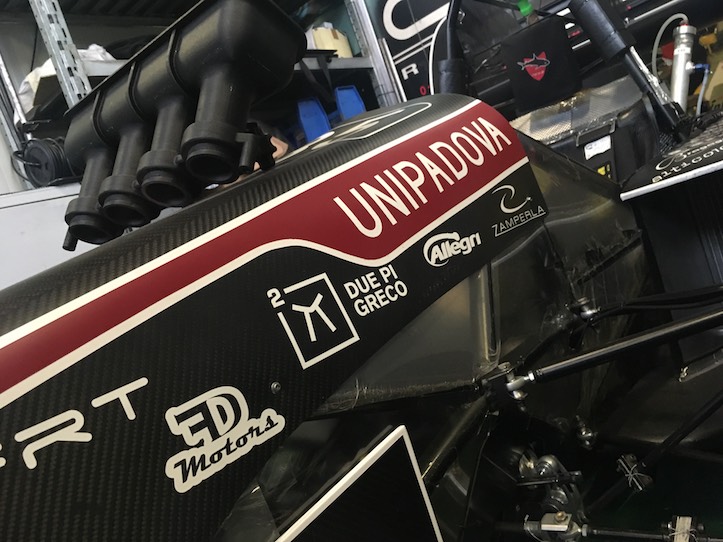Company leverages high-performance FDM 3D printing materials to replace traditional manufacturing for a range of demanding production applications
Due Pi Greco is an Italian product development service provider specializing in the design, engineering, prototyping and manufacture of functional parts and components. Having successfully implemented Stratasys 3D printing into its product development process, the company is now utilizing Stratasys FDM materials as the main driver for expanding its application use of additive manufacturing.
Today, Due Pi Greco reports how it is successfully leveraging the distinct high-performance attributes of Stratasys FDM Nylon 12CF, ULTEMTM 9085 resin, ST-130 soluble material and ASA, to create new production applications within different industries that enable additive manufacturing to replace traditional, more expensive methods.
“Stratasys’ diverse range of production materials allow us to develop some innovative applications for our customers,” explains Diego Pagnan, Founder and Owner at Due Pi Greco. “For example, we recently designed and 3D printed a boiler for Zoppas, a global supplier of heating systems for domestic and industrial use. This was made possible with ULTEMTM 1010 resin as it’s the only polymer that can perform at high temperatures up to 216 °C. Likewise, we recently 3D printed two rear wheel mudguards for a leading global producer of agricultural machinery. Leveraging the ASA material’s durability and high UV light resistance, we were able to replace traditional ABS and save cost.
“Without the advanced properties of these materials, we simply wouldn’t be able to exploit the great efficiencies of additive manufacturing for these types of demanding production applications,” he adds.
Reinforcing its production capability with Carbon-Fiber 3D printing
Building upon its arsenal of four Stratasys FDM 3D printers, the company has now invested in a Fortus 380mc Carbon Fiber Edition (CFE) from Stratasys’ local partner, Energy Group. Key to the decision was FDM Nylon 12CF material – an advanced 3D printed composite comprising 35 percent chopped carbon fiber. According to Pagnan, the material properties have expanded the team’s ability to meet more high part performance demands from new customers, enabling them to take on a higher number of jobs.
“Fortus 3D printers have always been reliable workhorses for us, but we decided to invest in the Carbon Fiber Edition as we found it the best alternative to CNC machining expensive metal parts,” says Pagnan. “Using FDM Nylon 12CF, we’re able to 3D print parts that perform similar to those produced using CNC processes. This not only saves us significant time and cost compared to conventional production methods, but the quality of the parts has made a huge impression on our customers too and subsequently opened up new business opportunities for us.”
These benefits are exemplified in a recent collaborative project with University of Padua, where Due Pi Greco 3D printed an airbox for the engine of a single-seat race car set to race at Formula SAE. The company overcame the lengthy lead times and high costs of conventional carbon fiber production by 3D printing the entire airbox in FDM Nylon 12CF, enabling the team to save significant time and cost. The speed at which the team could 3D print the part was also crucial in allowing them to iterate the design and test on track for optimal performance.
This was also prevalent in another recent project for a leading Italian cycling brand, in which the team used the Fortus 380mc CFE to optimize the design and production of a high-end bicycle seat. According to Pagnan, the customer reported that the result far exceeded expectations in terms of surface finish and resistance.
“When we started our business, we predominantly operated as a 3D printing service provider for prototyping requirements,” says Pagnan. “However, using Stratasys 3D printers throughout all our development work has enabled us to better understand the significant potential of additive manufacturing for production. This experience has changed our entire mindset and approach to the design and manufacturing workflow, with additive manufacturing now playing a key role throughout our product development process.”
Giuseppe Cilia, Italy Sales Manager, Stratasys, states, “The greatest challenge for today’s design and manufacturing specialists is to deliver high-quality, top-performing solutions within strict deadlines and restricted budget. Companies such as Due Pi Greco are a prime example of how Stratasys FDM additive manufacturing can help meet this challenge head on. That said, we are not resting on our laurels, as we continue to work closely with our customers to further optimize our high-performance materials to enable the expansion of additive manufacturing into new areas of production.”
www.stratasys.com

 Deutsch (Germany)
Deutsch (Germany)  Polski (PL)
Polski (PL) 










